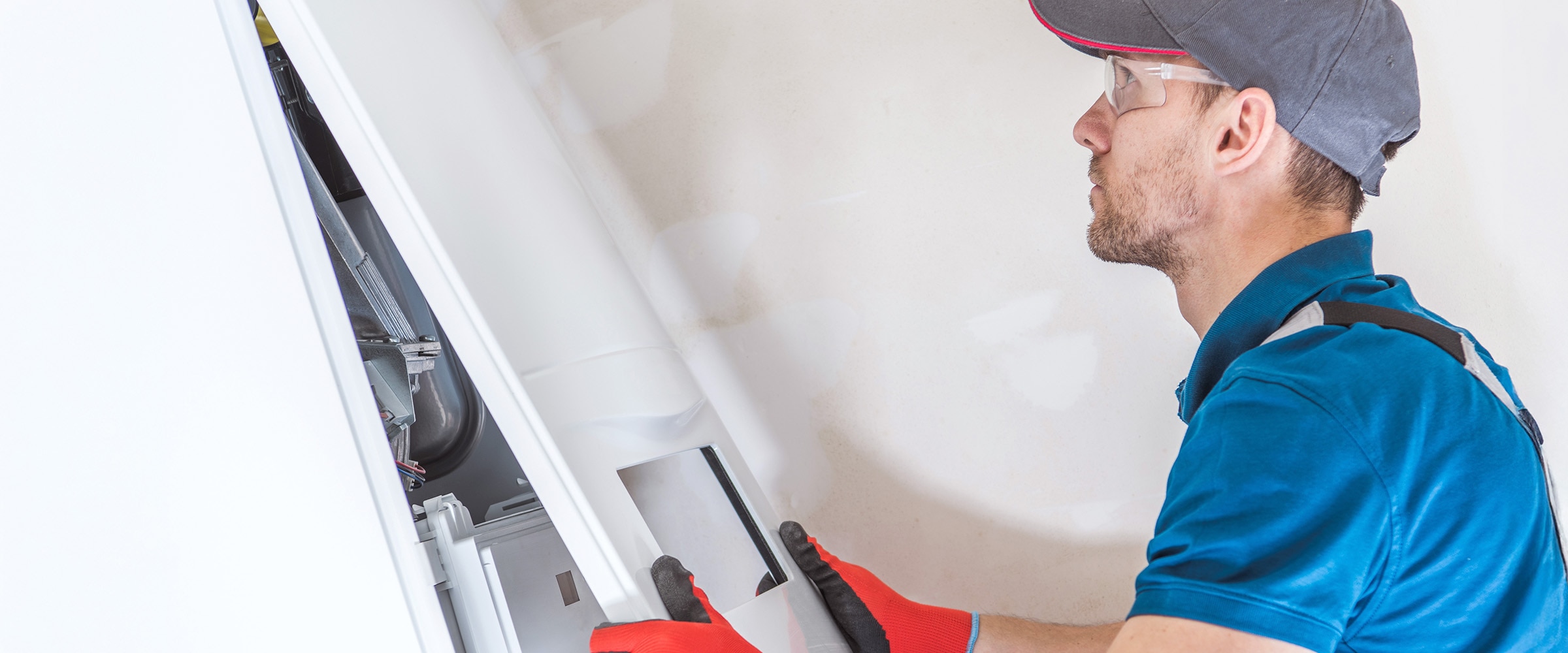Don't wait until the temperature drops to think about the condition of your furnace. A functional, efficient furnace not only keeps you and your family cozy and warm, but it's also important for energy consumption and safety.
One of the best ways to assess your furnace's health is to listen to the sounds it makes. While some sounds are normal, others can indicate potential issues. Let's get to know some of the most common furnace noises and why you might be hearing them.
Make sure you're familiar with the normal sounds your furnace makes. For instance:
- Clicking: In a gas furnace, a clicking sound right after the thermostat kicks in is the ignition system engaging.
- Low hum: The sound of the blower motor operating efficiently accounts for most of the noise you hear from a furnace's usual operation.
- Soft whirring: This is the fan running to circulate warm air through the ductwork in your home.
These sounds tell you that your furnace is humming along how it should. Now, let's go over some sounds you shouldn't ignore.
To understand what might be causing a banging or booming noise in your furnace, listen to when and where it's happening. If it happens a minute or so after turning on your furnace, it could be because dirty burners are delaying ignition. This delay results in a buildup of gas, so when the ignition finally starts, you hear a boom.
If the banging noise seems to be coming from a few feet away from the furnace as it kicks on, expanding air ducts could be the cause. There might be a problem with the size or sturdiness of the ductwork.
Schedule a cleaning and inspection for your furnace to clean out the burners and make sure there are no other problems.
When your furnace runs, does it sound like someone is kicking a can around your basement, maybe one with a few nuts and bolts inside? Something may be loose in your furnace—perhaps something as simple as loose screws or debris in the blower.
Your furnace is made up of many tiny parts working together. If a screw loosens or an access panel is poorly tightened, these parts can start to rattle.
Check for loose components and clean the area around the furnace and vent.
If nothing appears loose in the furnace but you continue to hear a rattling, popping or cracking sound, there may be a cracked or faulty heat exchanger. The heat exchanger helps a furnace combust fuel, but heat can build up if it isn't getting enough airflow.
Over time, the heat buildup can result in cracks and splinters, resulting in a rattling noise whenever your furnace runs. Don't ignore this problem—a cracked heat exchanger could lead to a carbon monoxide leak in your home.
Call a technician right away to diagnose the problem. In serious cases, the furnace may need to be replaced.
Air escaping through a small opening can create high-pitched hissing or whistling sounds. There are several possible places and reasons this can occur in and around the furnace. For instance, a clogged air filter may be forcing the air to work harder to move through, or ductwork leaks could be allowing hot air to escape—a waste of energy and money.
If you have a gas furnace and hear a hissing noise, treat it seriously. A leak in the lines that bring natural gas into the home must be addressed immediately.
Turn off the furnace and call for professional help. The solution could be as simple as replacing the air filter or as serious as fixing a gas leak.
High-pitched squeaking or squealing sounds will get your attention. These sounds, especially if accompanied by a smell of burning rubber, likely point to a loose or worn-out blower belt. Worn or dirty bearings or lack of lubrication in the system can also cause these noises.
Have a technician replace worn-out parts. Regular maintenance checks and proper lubrication will help avoid further damage.
A vibrating, buzzing or humming sound is likely an electrical issue. If you hear a buzzing as the furnace starts, it could be the transformer box.
In a newer furnace, the transformer box may have been installed too loosely and could require a simple tightening. But if an older furnace makes this noise, it may need replacing.
The capacitor, another element of the electrical system, could also be the problem.
For electrical-related concerns, contacting a professional is always a good idea.
Sounds of water in your furnace, like gurgling or boiling noises, are often due to moisture buildup in the system. You're more likely to hear this with a newer, high-efficiency furnace that produces condensation in the exhaust fumes.
If a clog prevents the condensation from draining correctly, it can cause watery noises. Don't ignore sounds of water from elsewhere in your ductwork, either. This could indicate water leaks throughout the home—a big problem that may lead to mold.
Have a technician visit for a proper diagnosis.
Don't ignore what your furnace is trying to tell you! A great way to stay ahead of maintaining your furnace is to get regular checkups from a qualified technician. Right after a tuneup, take note of what your furnace sounds like so you have a baseline understanding of what "normal" is. This will also allow you to more easily identify unusual sounds indicating a problem.
The furnace may be intimidating, but keeping it in good shape doesn't have to be. Get the peace of mind that comes with a well-maintained furnace by using our handy Home Improvement Locator to find the right contractor for you. When your furnace needs repair or replacement, enjoy special financing with Synchrony to help you pay for the project over time. Stay safe, and stay cozy!
READ MORE: How-to: Financing your HVAC System Replacement

